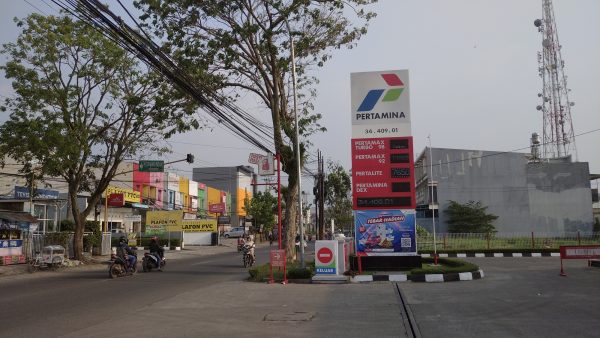Over the weekend, President Joko Widodo announced that the government would be reducing fuel subsidies and that the price of gasoline in Indonesia would be going up. One liter of the widely used Pertalite gasoline was raised from IDR 7,650 ($0.51) to 10,000 ($0.67). Higher octane Pertamax, which already saw a price increase earlier this year, went from IDR 12,500 to 14,500.
The decision has touched off lively debate about whether reducing subsidies is a good thing or a bad thing, who it benefits, and the effect on inflation, as well as casting a spotlight on the lack of public transit infrastructure in the country. This kind of critical introspection is to be expected when the cost of a staple good like gasoline increases by 31 percent.
There is an important distinction to be made here, however. The price of gasoline did not go up. The subsidy went down, which is pushing the cost of gasoline closer to its actual market price. Because the subsidy has merely been reduced and not eliminated, Pertalite at 67 cents a liter is still significantly cheaper than it should be in a world where crude is $90 a barrel. The government has simply made the decision that it wants to scale back how much of the mismatch between market price and the retail price comes directly out of the state budget.
Generally speaking, reducing fuel subsidies is a good long-term reform because broad subsidies like these are inefficient. Anyone who uses Pertalite benefits from the subsidy, whether they are a low-income or high-income earner. This is also why fuel subsidies are extremely popular and once enacted become deeply entrenched since nobody wants to take the political heat for touching them. Reforming these subsidies has been on the agenda for a long time in Indonesia, but Jokowi feels like now the time is right with high oil prices providing a reasonable pretext. Moreover, because he is not running for re-election and has political capital to spare he can do unpopular things.
While there are valid concerns about the impact of higher fuel prices on the poor and on inflation, it would be better for the government to spend less on broad-based fuel subsidies and target assistance directly at lower-income groups or use those funds to invest in things like public transit and renewable energy. There has been talk already about leaning in this direction through some kind of social assistance that would cushion higher gasoline prices for low-income groups and, in principle, this is a sound idea.
The subsidy issue also raises questions about how the government is spending money. In Indonesia’s proposed 2023 budget, spending levels are expected to remain high even as the budget deficit shrinks. This is being accomplished on the revenue side through higher excise and consumption taxes, and on the spending side from subsidy reforms. Some might find this unpalatable because the savings from reduced subsidies will be recycled into, among other things, controversial projects like the new capital. People may not like the idea of having to pay more at the pump in order to fund that.
Fair enough. But reducing fuel subsidies now will be recycled into many other different government spending programs over the long-term. Even after the construction of the new capital city is done and gone, fuel subsidy reforms today will increase the resources the state can spend in other areas for years to come. The 2023 budget, after all, is proposing generous spending levels across the board as compared to 2019, not just for the new capital city. And some of that is being paid for by shifting a larger portion of gasoline prices onto consumers. Whether the government ultimately makes wise use of those freed up funds is, in my opinion, a separate issue.
Another potential knock-on benefit here is that higher gasoline prices tend to place pressure on officials to get serious about reducing fossil fuel consumption by investing in clean energy and public transit. That is what’s been happening in Thailand, for instance, where renewable energy investment began increasing in response to high oil prices. When gasoline is artificially cheap as a matter of policy and consumers are shielded from market prices, policymakers have much less incentive to deal with these issues.
I have no idea whether a 31 percent increase in the price of Pertalite will move the needle here in a meaningful way, but I think it’s fair to say the lack of good public transit options and electric vehicle charging stations in Indonesia will be more obvious to many today than it was last week. Despite the downsides, when all of these things are looked at together reducing fuel subsidies will probably be a net economic benefit in the long-run.


